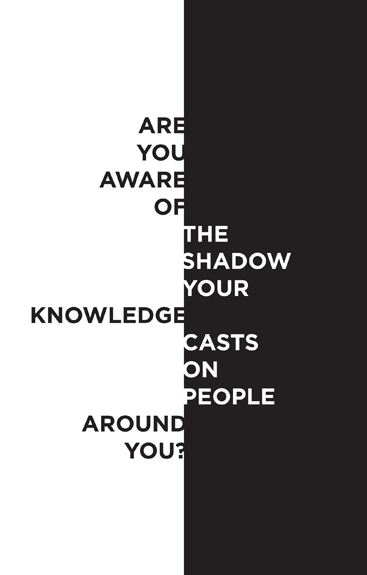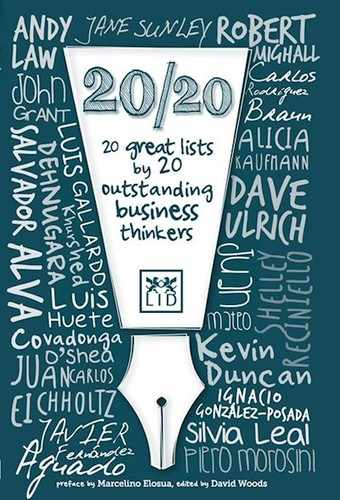2.
THE PROBLEM WITH “CERTAIN” LEADERS
“Dogmatism and skepticism are both, in a sense, absolute philosophies; one is certain of knowing, the other of not knowing. What philosophy should dissipate is certainty, whether of knowledge or ignorance.”
Do you remember where you were when you heard the news of Princess Diana’s death or John F Kennedy’s assassination? Or what you were doing when the planes struck the World Trade Center in New York? These tragedies are likely to be imprinted in our memories for ever. But how consistent and accurate are those memories over time? And how certain can we be?
Diana: I was working for an American Law firm in London and had just phoned a colleague in the Chicago office. I was trying to finish a report due the following morning, and I’d realized I was missing some really important figures. Within a few seconds of hearing my colleague’s voice, I knew something was terribly wrong. “Sorry, I can’t speak right now," he said in a panicked voice. “Our office in New York has been attacked. Turn on the TV,” and he put down the phone. Puzzled, I left my office and went into the corridor, looking for someone to talk to. Most people were working calmly at their desks, when all of a sudden the Managing Partner came rushing past my office shouting “We’ve been attacked!” Mayhem ensued. People followed him into the boardroom where pictures of a smoking tower were showing on the TV. We knew that the firm’s New York office was on floors 54-59 of the North Tower of the World Trade Center. The room quickly filled with people huddled around, some crying, some staring at the screen in shock. Like most people who have witnessed or heard the news of traumatic events, I have vivid memories of that afternoon. I remember biting my nails hard and feeling torn between watching the screen and running out the door. I can describe in detail what I was wearing, who said what, and my surroundings. But research shows my memories of that day are not reliable.
These are known as “flashbulb memories,” a term introduced in 1977 by psychologists Roger Brown and James Kulik. Their argument was that these highly dramatic events are so emotionally important to us that they’re imprinted in our memories like a photograph, capturing all details vividly and accurately. Whenever the recollection of an event is accompanied by the words “I remember it as if it was yesterday” it is most likely pointing to a flashbulb memory in our lives.
What is interesting, though, is not just the research on the reliability of our memories (showing that the more time passes, the more memories deteriorate), but our high level of certainty about their accuracy. A study carried out by psychologist Ulric Neisser after the Challenger space shuttle explosion in January 1986 compared students’ recollections immediately after the event with their recollections two and a half years later. The study revealed that 25% of the students gave a significantly different account of the event at the later date. What was even more startling, though, was when he showed those students their conflicting accounts of the events, pointing to the original handwritten notes, they vehemently expressed that they were absolutely certain that their false recollections were correct. One student even commented: “That’s my handwriting, but that’s not what happened.”33
Experts are not immune from the certainty bias because the more committed we are to a belief, the harder it is to let go of it, or acknowledge that we are wrong.34 It’s as though we have an internal immune system that automatically attacks any invasion of doubt and ambiguity that we may encounter, or any challenge to our confirmed world view.
A knowledge based society places a high value on certainty and looking as though we know what we are talking about, being sure of ourselves, being on top of our subject matter, speaking with conviction; these all lead to us being seen as competent. Our need for certainty, to know what’s going on, to work things out so that we can be useful is so ingrained that we might not even be aware of when it exerts pressure in our lives, how that manifests, and what the impact is. Our doubts are alleviated when someone looks as though they know what they are doing. Confidence breeds certainty, while doubt breeds uncertainty and a lack of trust in the capacity for the job. The illusion or fantasy that experts know what they are doing is im- mensely comforting.
In the first presidential debate between US President George W Bush and Senator John Kerry on 30 September 2004, Bush accused Kerry of changing positions on the war in Iraq.
“I just know how this world works, and that in the councils of government, there must be certainty from the US president. We change tactics when we need to, but we never change our beliefs, the strategic beliefs that are necessary to protect this country in the world.”35
In response to that, Kerry argued that “certainty” can get you into trouble and that it would be better to acknowledge the facts and adapt the policy accordingly.36 Bush won office, and his need to deliver certainty and conviction that he was right was one of the factors that led him to declare war in the Middle East – on the assumption that there were weapons of mass destruction there.

Politicians don’t have much room to manoeuvre. After running for a seat for the Labor Party in the Australian Federal Parliament on 7 September 2013, Nicole Lessio, a young politician from Brisbane, became convinced that the pressure to “know” is one of the primary barriers to increased political participation.
“The pressure is immense. You don’t want to be the candidate to go viral in the media! You don’t want to embarrass yourself and your family and you certainly don’t want to embarrass your Party.
“There are huge risks in assuming or pretending knowledge, and the media (in particular) are very keen to capitalize on any error of fact. I did many interviews and all journalists were keen to ‘catch me out’ on facts and figures.”
As an incumbent Member of Parliament, Nicole’s opponent spends his whole working life focused on staying fully appraised of details. As the “amateur” challenger, she has the short “daily briefing” email on the events of the day from her Party Headquarters to fall back on. But mostly she has to rely entirely on her own general knowledge, specific knowledge in policy areas she is familiar with, and the uncomfortable unknown. “It is an interesting paradox – the media and the public expect you to be a ‘regular’ person (i.e. not a politician, because they detest the professionalization of politics) but at the same time expect you to know every minute detail of each policy platform. It is challenging to traverse.”
In answer to questions put to her during a public forum, Nicole responded with “that isn’t something I’m completely sure of. Can I get your details, take that question on notice and get back to you?” She reflects that other candidates on the panel seemed to feel greater pressure to know and so pretended knowledge on a variety of issues. “Some voters quite happily lapped up the incorrect information they were fed, while others scoffed at the obvious errors. I can only suspect that had I made such errors, they would have found their way onto the news as a number of voters filmed proceedings,” says Nicole.
The expectations laid on politicians are like straitjackets, making it hard for them to change their minds. Margaret Thatcher, former UK Prime Minister, famously declared that “the lady’s not for turning” and refused to display any signs of weakness. When the former Australian Prime Minister, Kevin Rudd, changed his position on marriage equality in a blog post on his website on 20 May 2013, Nicole celebrated. She posted it on her campaign Facebook page and was deluged with messages – most were supportive but some were appalled that Rudd had changed his mind.
Nicole’s story illustrates the razor’s edge politicians and others in leadership roles find themselves on. It also illustrates the impossible double bind that many of us face. How can we hold doubt and be truthful about our knowledge on the one hand, whilst meeting other people’s expectations to be certain on the other?
